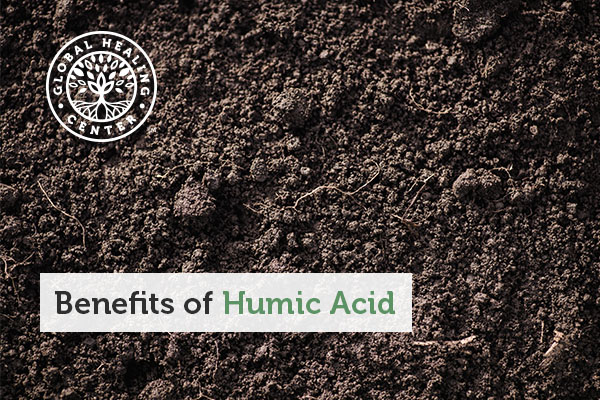
Soil contains a wealth of organic matter from decomposed plant and animal matter. A substance known as "humus" is the primary component of that organic matter. As water washes through soil, it washes away the humic acids from the humus in the soil. Research has shown these acids to be a very effective tool for regulating metals in both plants and animals.
Benefits of Humic Acid
The amount of humic acid in a section of soil also greatly influences the overall fertility of that soil, because it directly affects the water-holding capacity of that soil. Consequently, edible plants grown in humic conditions are often more nutritious than ones that are not. [1]
Humic acid has been used to promote the soil-less growth of seedlings. Cucumber and tomato seedlings have been found to be especially responsive to growth aquatic media that contain appreciable amounts of humic acid. Scientists have been studying the biochemical processes that may account for the substances ability to promote growth in plants that are not rooted in soil. These researchers believe that when a plant's cells are nourished by a rich source of humic acid, then those cells begin to produce more plant growth hormones.
The presence of humic acid in soil or water also appears to increase the bioavailability of metal ions. This allow plants to more efficiently utilize the metals they absorb and better purge themselves of leftovers.
Humic Acid and Toxic Metals
Humic acid has a special ability to bind to positively charged ions in the human body. It binds to the deposits that form when particles of magnesium, calcium, iron, cadmium or phosphorous dissolve in water because these deposits are positively charged. This purifies the body and helps revitalize natural balance, much as it does in plants.
Not only are scientists studying new ways that humic acid might be used to help with metal detoxification, they're also looking at how it might be used to keep high levels of unwanted metals out of the body to begin with. [2] Some scientist believe they may have already found a way to regulate the amount of metal ions that enter certain farm-raised plants. That could mean people would soon consume less unwanted metal in the first place, and that their bodies will be less dependent on purification to expel toxic metals. [3]
References (3)
- Atiyeh RM, Lee S, Edwards CA, Arancon NQ, Metzger JD. The influence of humic acids derived from earthworm-processed organic wastes on plant growth. Bioresour Technol. 2002 Aug;84(1):7-14.
- Info Archive Site. Fulvic Acid Minerals Information. Last Accessed 2013-04-22.
- Hseu YC, Lin E, Chen JY, Liua YR, Huang CY, Lu FJ, Liao JW, Chen SC, Yang HL. Humic acid induces G1 phase arrest and apoptosis in cultured vascular smooth muscle cells. Environ Toxicol. 2009 Jun;24(3):243-58. doi: 10.1002/tox.20426.
†Results may vary. Information and statements made are for education purposes and are not intended to replace the advice of your doctor. If you have a severe medical condition or health concern, see your physician.







